The holiday season is a time of joy and togetherness, but it can also present hidden dangers for our pets, especially during Thanksgiving when food, decorations, and guests come together in ways that can increase risks for accidents. At Southern Arizona Veterinary Specialty & Emergency Center, we know that for pet owners, nothing is more frightening than seeing a pet in distress. We’re here to help you stay informed and prepared, so you can confidently protect your pet and enjoy a peaceful holiday season. This guide will walk you through common holiday risks, tips to prevent emergencies, and advice on when to seek immediate care.
Thanksgiving-Specific Risks: Food Hazards to Watch For
Thanksgiving often centers around delicious food, but many holiday treats can be dangerous, even life-threatening, for pets. Here are the most common food hazards:
1. High-Fat Foods and the Risk of Pancreatitis
A meal packed with high-fat items like turkey skin, buttery mashed potatoes, and gravy may be enjoyable for humans, but it can lead to pancreatitis in pets. Pancreatitis, an inflammation of the pancreas, is a serious condition that can result in severe abdominal pain, vomiting, and, in extreme cases, organ failure.
Unfortunately, many high-fat foods can end up in pets’ mouths due to well-meaning guests offering table scraps, pets “counter-surfing” for tasty morsels, or even snagging food set down temporarily on chairs. Kids, in particular, may unknowingly offer pets bites of their holiday treats, unaware of the potential risks. Grease drippings under grills and leftover bones or fat in the trash are also tempting to pets, so be vigilant in keeping these out of reach.
2. Toxic Foods
Many Thanksgiving foods are toxic to pets. Here are a few key ones to watch out for:
- Onions and Garlic: Common in stuffing and seasonings, these can cause serious gastrointestinal issues and damage red blood cells.
- Chocolate: A classic holiday treat, chocolate contains theobromine, which is toxic to both dogs and cats.
- Grapes and Raisins: Even small amounts can lead to kidney failure in dogs.
- Alcohol: Any form of alcohol is hazardous to pets and can cause dangerous drops in blood sugar, body temperature, and blood pressure.
To avoid temptation, keep plates and serving dishes high and out of reach, and inform guests not to share food with pets.
3. Pet-Safe Food Options
While it’s best to avoid feeding pets from the table, you might want to treat them with pet-safe options, such as a small amount of plain pumpkin or a few green beans. However, keep portions very small, without butter or seasonings, and monitor them for any signs of digestive upset.
For additional resources on Thanksgiving pet safety, visit the American Veterinary Medical Association and the ASPCA’s Thanksgiving Safety Tips.
Other Holiday Hazards Beyond the Table
Beyond food, there are several other holiday items that can pose risks to pets. Here’s what to keep an eye on:
1. Holiday Decorations
Decorations, though festive, can pose a threat if ingested or mishandled.
- Tinsel and Strings for Cats: Cats, in particular, are attracted to shiny items like tinsel, which can cause severe intestinal blockages if swallowed. Even a small piece can lead to a life-threatening condition that often requires surgery.
- Candles and Fireplaces: Open flames are hazardous, especially if curious pets can reach them. To prevent burns or accidents, keep all open flames out of reach.
- Holiday Plants: Plants like poinsettias, mistletoe, and lilies can be toxic to pets. For cats, even a small amount of lily pollen can lead to kidney failure. It’s best to avoid bringing lilies into your home if you have cats, as the risk is too high.
2. Holiday Stress and Anxiety
The hustle and bustle of holiday gatherings can be overwhelming for pets. Unfamiliar guests, loud noises, and activity can lead to anxiety, particularly in pets with a history of nervousness.
- Signs of Stress: Watch for signs of stress, such as panting, pacing, hiding, or even aggressive behavior. These may indicate your pet needs a break from the festivities.
- Consider Boarding: For pets who are highly sensitive to noise or people, boarding at a trusted facility can provide them with a calm, predictable environment during the holiday chaos.
Winter Safety Tips for Pets
In addition to holiday-specific risks, winter weather brings its own set of concerns. While Tucson may not get too cold, nights can drop in temperature. If you are traveling with your pet for the holidays, remember that a dog used to the Arizona heat may struggle with cold temperatures.
1. Outdoor Risks
- Hypothermia and Frostbite: Ensure your pet isn’t left outside for extended periods in chilly weather, especially if they aren’t thick-coated and used to cold temperatures.
- Shelters for Outdoor Animals: If you have outdoor pets or look after feral cats, set up warm shelters to protect them from the cold.
2. Safety Gear for Winter Walks
- Booties and Jackets: Short-haired breeds, puppies, and senior pets may need jackets for warmth, and booties to protect their paws from cold or icy and rough surfaces.
- Checking Paws After Walks: Inspect paws for any signs of injury or irritation, particularly if you use any winter salts on walkways.
Training Tips That Can Save Lives
Training your pet to follow basic commands can be life-saving, especially during the holidays. Teach them to reliably respond to commands like “no,” “leave it,” and “drop it.” A well-timed “leave it” could prevent them from snatching a dangerous food or decoration.
Basic obedience training, including recall, helps ensure your pet’s safety both indoors and outside. If your pet is unfamiliar with these commands, consider working with a professional trainer to improve their response before the holiday season. Good recall is especially important if you have a pet that likes to dart through doors, and your guests may not know to watch out.
Signs That Warrant Immediate Emergency Attention
Even with the best precautions, accidents can still happen. Here are signs to watch for and situations that call for immediate veterinary attention:
- If You Witness Your Pet Eating Something Hazardous: There is a limited window of time in which inducing vomiting is effective. If you know your pet has ingested a toxic item, contact an emergency vet as quickly as possible.
- Vomiting, Diarrhea, or Refusal to Eat: These can be early signs of pancreatitis or other toxicities and shouldn’t be ignored.
- Breathing Issues, Seizures, or Collapse: These are severe symptoms that require immediate attention, as they may signal poisoning or other critical conditions.
If any of these signs occur, don’t delay—contact Southern Arizona Veterinary Specialty & Emergency Center’s emergency services right away. When in doubt, it’s always best to err on the side of caution.
Preventive Measures to Ensure a Safe Holiday
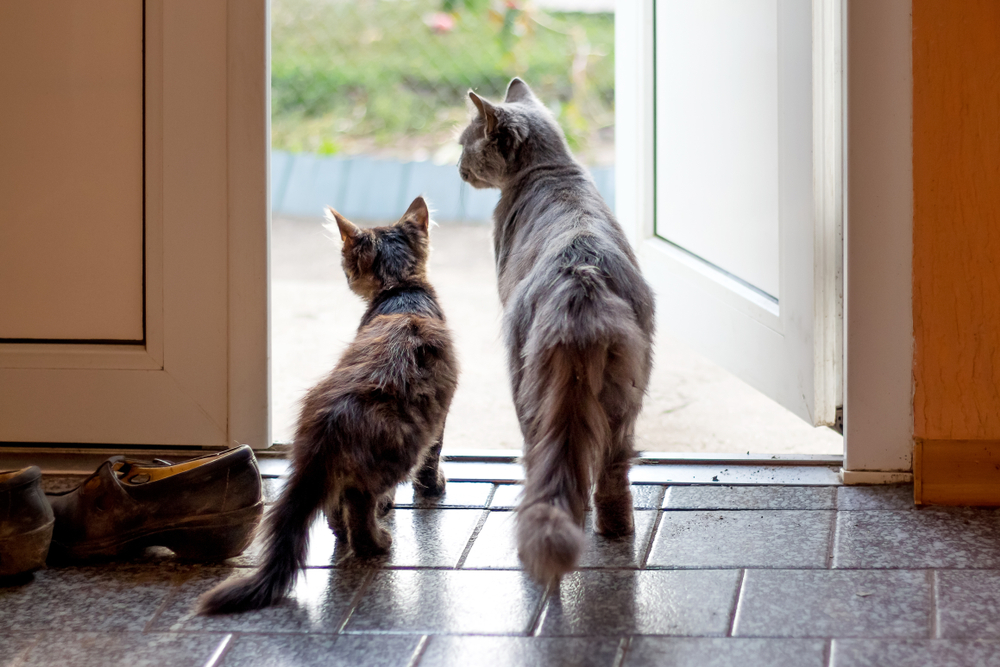
Preventing holiday hazards takes a little extra planning but can make a world of difference in keeping your pet safe.
- Limit Access to Dangerous Areas: Use baby gates or close doors to restrict access to the kitchen or dining areas.
- Keep Trash Secure: Leftover bones, fat, and food scraps in the trash are tempting but dangerous, so ensure your trash is covered and out of reach.
- Inform Guests: Politely let guests know not to feed pets, and remind them to keep food items up and out of reach.
– Make sure your pet’s ID is up to date: Your pet should wear a collar or harness with your contact information. Double check that your information is up to date on your pet’s microchip. If your pet does make a run for it from your holiday party, that ID tag could be their ticket home.We understand how important your pet’s well-being is to you, especially during the holiday season. At Southern Arizona Veterinary Specialty & Emergency Center, we’re here to provide support and guidance so that you can enjoy the holidays without worry. For more information on holiday safety, visit our team’s page to learn about the people who are here to help you and your pet this holiday season.
This holiday season, a little preparation and awareness can go a long way in keeping your pet safe. With these safety tips, you’ll be better equipped to navigate the festivities and ensure a peaceful, happy time for everyone in your family.


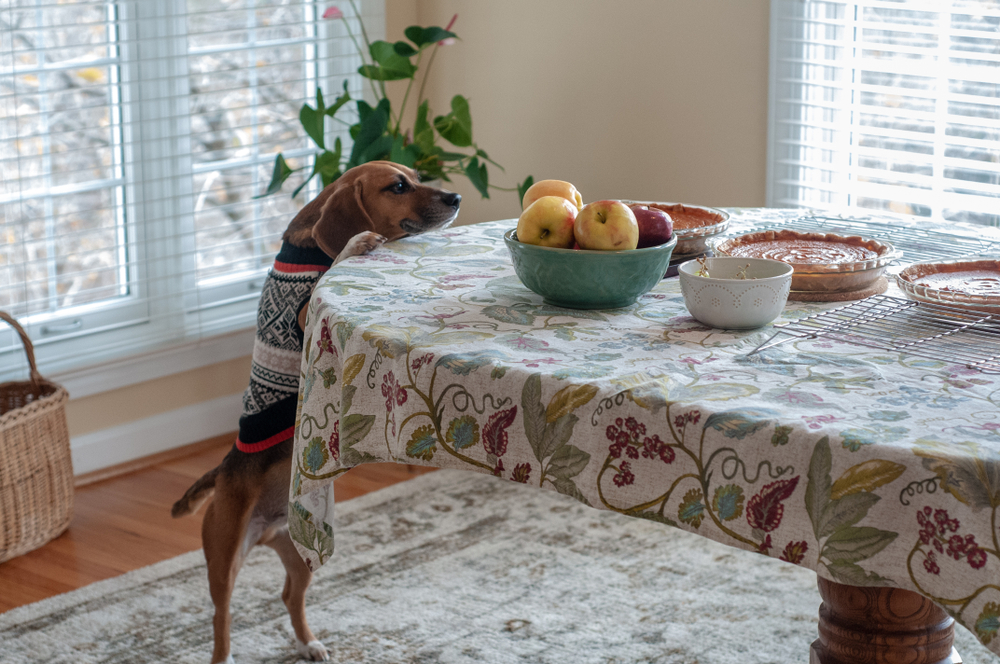
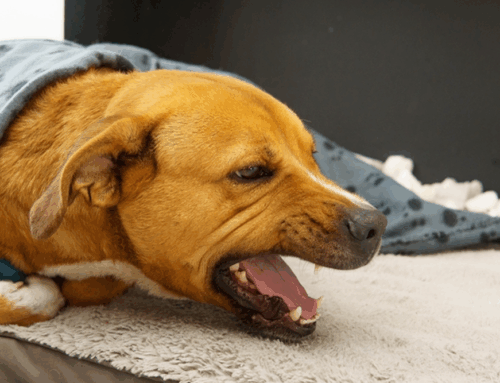
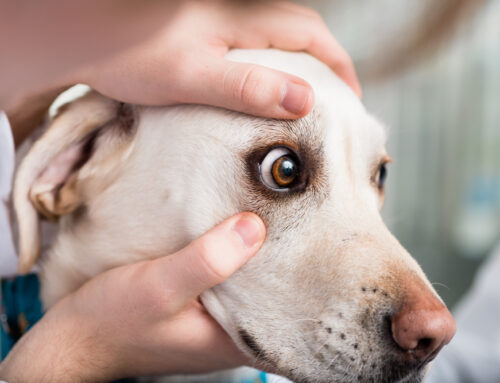

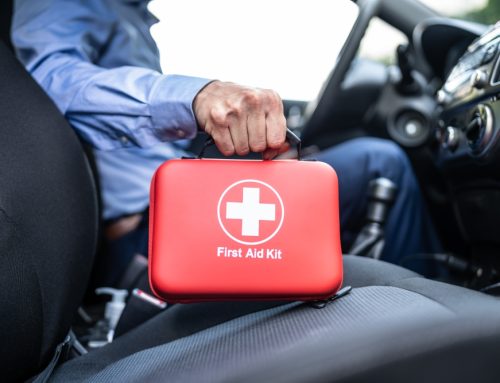

Leave A Comment